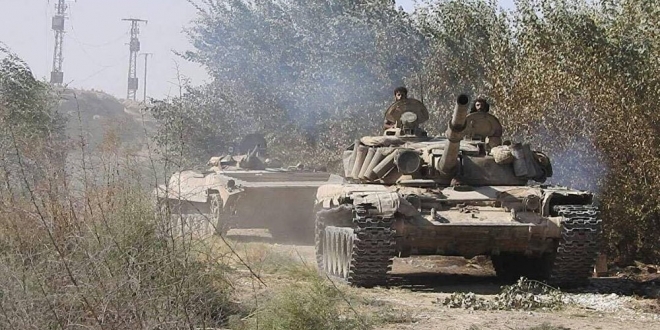Those directly involved in negotiations, including Russia and Turkey, should continue to pressure the Assad government to exercise restraint in Idlib
August 22, 2018

Over the past year, the Syrian government has slowly regained territory across the country, including retaking all but one of the so-called de-escalation zones. With the recapture of each area, civilians and rebels have evacuated to the only remaining opposition-controlled zone in Idlib. As the Syrian government looks to regain total control of the country, the possibility of a battle to retake Idlib is looming. Syrian government officials recently dropped leaflets on Idlib City which called on civilians to cooperate with the government, stating that cooperation “will release you from the rule of militants and terrorists, and will preserve your and your families’ lives.” However, as airstrikes increase this week, a political solution seems increasingly unlikely. Assad has stated that Idlib is now a priority. A battle for Idlib could result in humanitarian devastation. It would place two million civilians, including more than a million highly-vulnerable internally displaced people, at risk. Turkey should continue to pressure Russia to withhold support for a Syrian offensive in Idlib, instead advocating for a political solution. International leaders, including the US and the European Union, should encourage parties to the conflict to return to a UN-led peace process, call on Turkey to ensure UN observers have access to observation outposts in Idlib, and formulate plans for how best to support the most vulnerable civilians if an incursion begins.
Since August 2016, a series of at least fifteen reconciliation agreements between the government and rebel groups have resulted in militants and civilians being transferred to Idlib. More than 80,000 of them have arrived in the past six months from Eastern Ghouta, Damascus, and Homs. Most recently, the Deraa agreement has resulted in the transfer of thousands of people to Idlib, with buses still arriving this past weekend. Such transfers are largely involuntary, as residents are left with the option of transfer or continued bombardment. After two years of such transfers, over a million IDPs now live in the governate of Idlib, all of whom are now under threat from the very government that oversaw their transfer.
These IDPs already suffer from a lack of humanitarian support, sanitation services and employment. They are also particularly vulnerable to attack. The Syrian government and Russia have previously demonstrated their willingness to target IDP and refugee camps (such as in Hammad, and Yamadi to name a few). Many IDPs in Idlib are living in makeshift tent cities, which lack even basic safety precautions. The high population density of these camps means that even one munition can be highly lethal, and tents do not provide the same physical protection as the permanent infrastructure of a city. Additionally, the small distance between tents raises the likelihood that a fire caused by attack will spread, destroying the housing and supplies of hundreds of people. SJAC’s partners have collected interviews in IDP camps in Idlib where there are no medical services available, leaving IDPs without medical care in case of attack. Adding to these vulnerabilities, IDPs and locals have no remaining places to flee. Turkey has closed its border to refugees, and Idlib is the only remaining rebel-held territory. The UN is warning that a Syrian offensive could result in the worst humanitarian tragedy of the war, stating that the already harsh conditions could be made 100 times worse.
A military battle to retake Idlib is not yet inevitable, and those directly involved in negotiations, including Russia and Turkey, should continue to pressure the Assad government to exercise restraint in Idlib. Turkey has much to lose in the case of a Syrian offensive, and Russia’s reputation would improve if a bloody battle could be avoided. In preparation for a potential offensive, the UN should request immediate, full access through Turkey into northwest Syria for humanitarian convoys to prepare for the needs that will arise. Additionally, the US and EU should increase their pressure on the parties to the conflict to return to the UN peace process, with a focus on a political resolution to Idlib. In the case of an offensive, the UN should demand access to Turkey’s twelve observation posts in Idlib to place pressure on Russian and Syrian forces to avoid violations of humanitarian law. Additionally, the Security Council should call on Turkey to open its borders in the case of a Syrian offensive to enable a safe haven for fleeing civilians. As an offensive looms in Idlib, the international community must use all the options at its disposal to encourage the protection of the most vulnerable populations in Idlib and prevent yet another humanitarian crisis.
.
.
